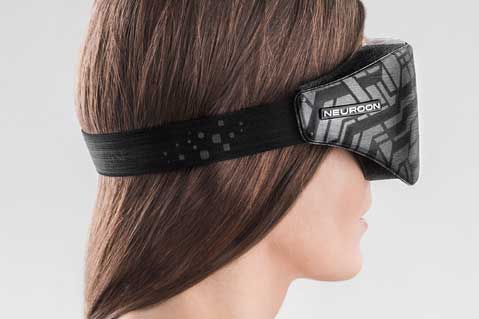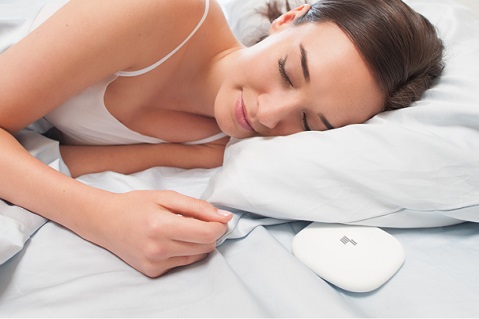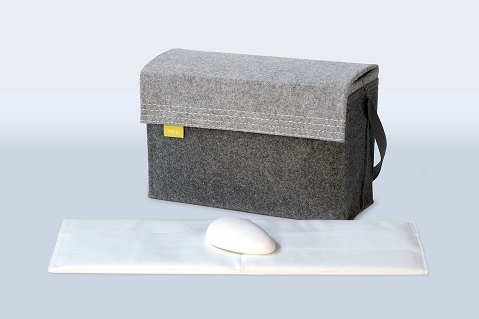October 19, 2016
New Gadgets Promise More Restful Nights
Sleep tracking is so last year. A handful of next-generation gadgets go beyond merely measuring sleep duration and quality, promising also to help users fall asleep, stop snoring and even sharpen their lucid dreaming skills.
Lack of sleep is a serious and widespread problem. A recent study by the Centers for Disease Control and Prevention (CDC) found that 35% of Americans aren’t getting the recommended seven hours of sleep each night. In the short term, lack of sleep is linked to motor vehicle crashes, industrial disasters and other occupational errors; longer term, it leaves sufferers vulnerable to chronic health problems like high blood pressure and heart disease, according to the CDC.
Here are a handful of tech gadgets that promise to help users get the rest they seek:
Neuroon

The $299 Neuroon is an intelligent sleep mask that uses biometric sensors and LED light therapy to alleviate jet lag, improve sleep efficiency and help users fall asleep faster. The sensors track things like movement, muscle activity, temperature, pulse and blood saturation to monitor sleep and determine your REM stage. The mask also uses electroencephalogram (EEG) technology to measure brain waves. “It is the first wearable device that uses EEG for sleep staging,” says Dagna Frydrych, a spokeswoman with Inteliclinic, the company that makes Neuroon. “Other consumer products don’t provide users with data analytics on such a high level.”
The mask is ideal for frequent fliers, shift workers and anyone who struggles to fall asleep, according to Frydrych. The product’s initial Kickstarter campaign attracted almost 2,000 people, raising around $500,000. Neuroon has also been working with airlines to run tests with flight crews and passengers. “In the future, we plan to start a regular cooperation with a national airline, so that passengers have access to the Neuroon during the flight and can buy it afterwards if they like how it works,” Frydrych says. “In this case, the masks would also display the logo of the airline.”
A separate phone app allows Neuroon wearers to explore the potential of lucid dreaming, where the sleeper can influence the content of a dream. When the mask detects REM sleep, it implements external stimuli techniques that may help induce lucid dreaming, Frydrych says.
FitSleep

The FitSleep is an “intelligent sleep companion” that can be tucked under a pillow or mattress. It tracks sleep patterns by logging heart rate, respiratory rate and other vital signs, then uses that data to help ensure better nights of rest. Using a range of “alpha waves,” the device simultaneously scans how the user’s body reacts to the different waves, then narrows down the range to emit waves tailored to help the user get a better sleep. “Our goal is to not only help you learn more about your sleep, but give you the tools to achieve an easier and healthier night’s sleep,” says FitSleep creator Xuan Yao. A built-in alarm helps wake the sleeper during light sleep for a more natural awakening. The device retails for $189. The makers of FitSleep raised just over $128,000 from interested backers in an Indiegogo campaign that ended in August.
Nora

The Nora is billed as “the world’s first smart, noninvasive snoring solution that stops snoring before it wakes your sleeping partner.” The pebble-shaped device sits on a bedside table and detects the early sounds of snoring, gently and slowly moving your pillow, via a pad placed underneath, to restore natural breathing without disturbing the sleep of either partner. “Designing a truly noninvasive snoring solution sounds like a contradiction, but our insight into the body’s response to movement has made it possible to do exactly that,” says Behrouz Hariri, cofounder and product lead for Nora. The $300 device includes a travel case and pairs with a companion mobile app that keeps track of sleep and snoring patterns. So far, the company says it has received more than $1 million in preorders.